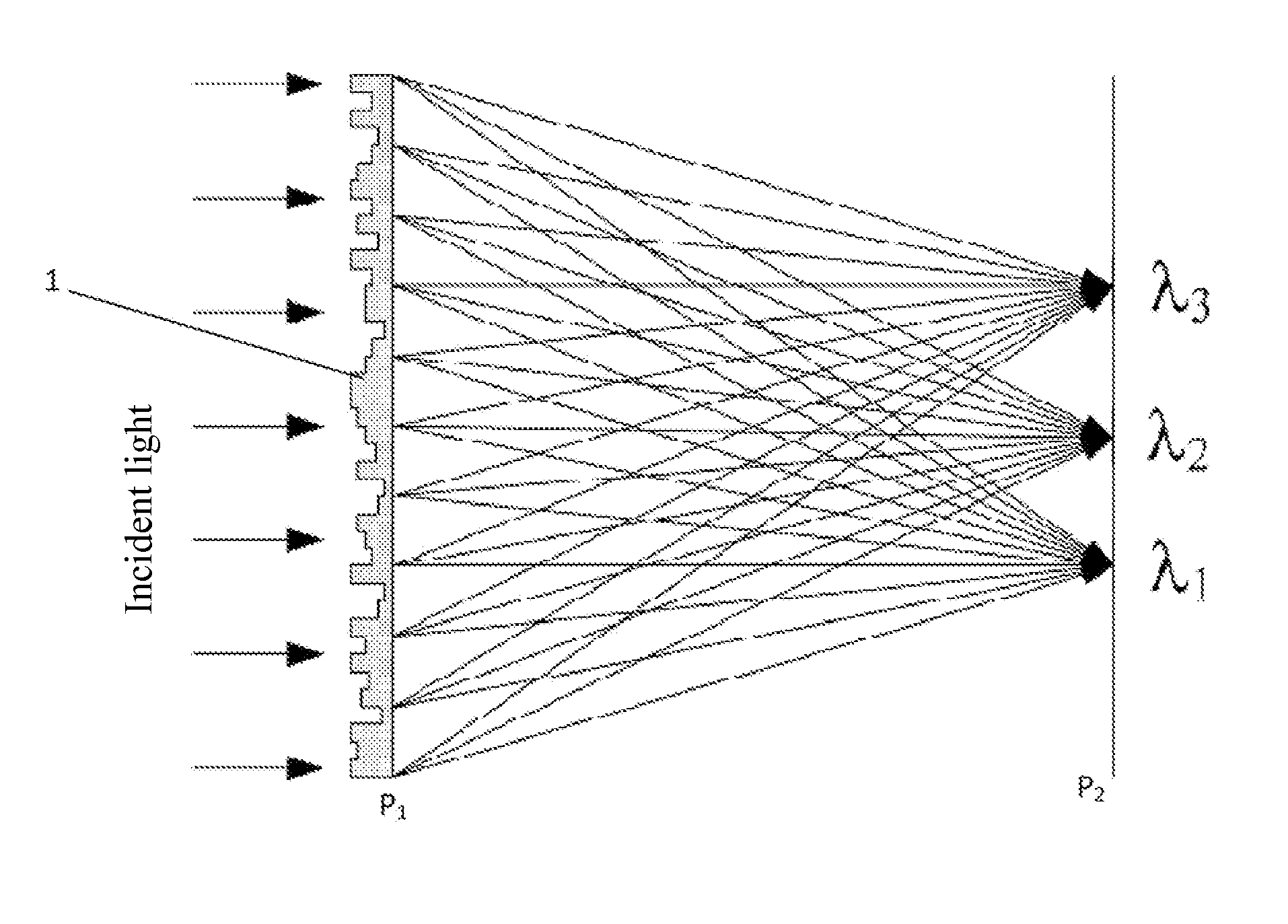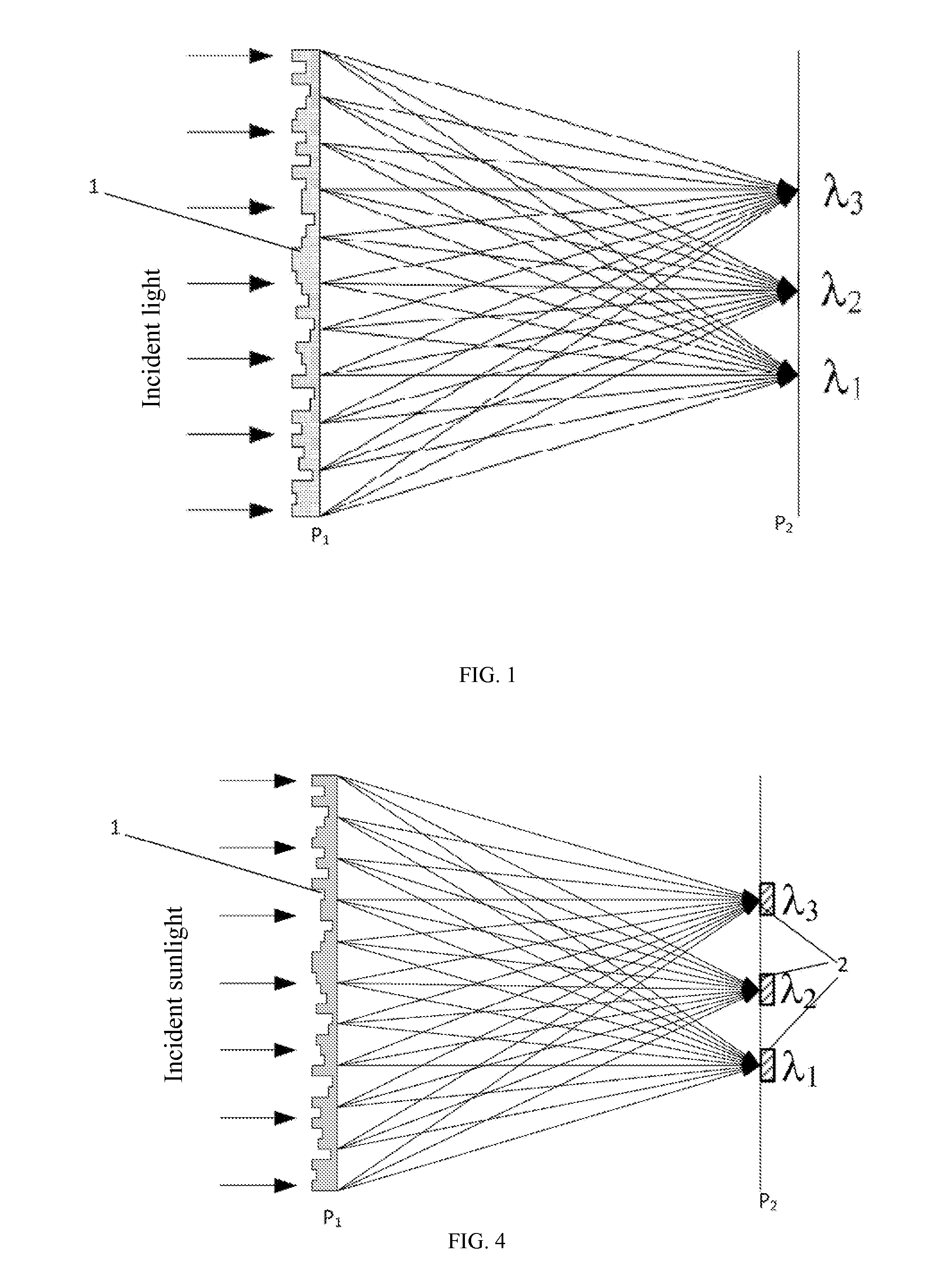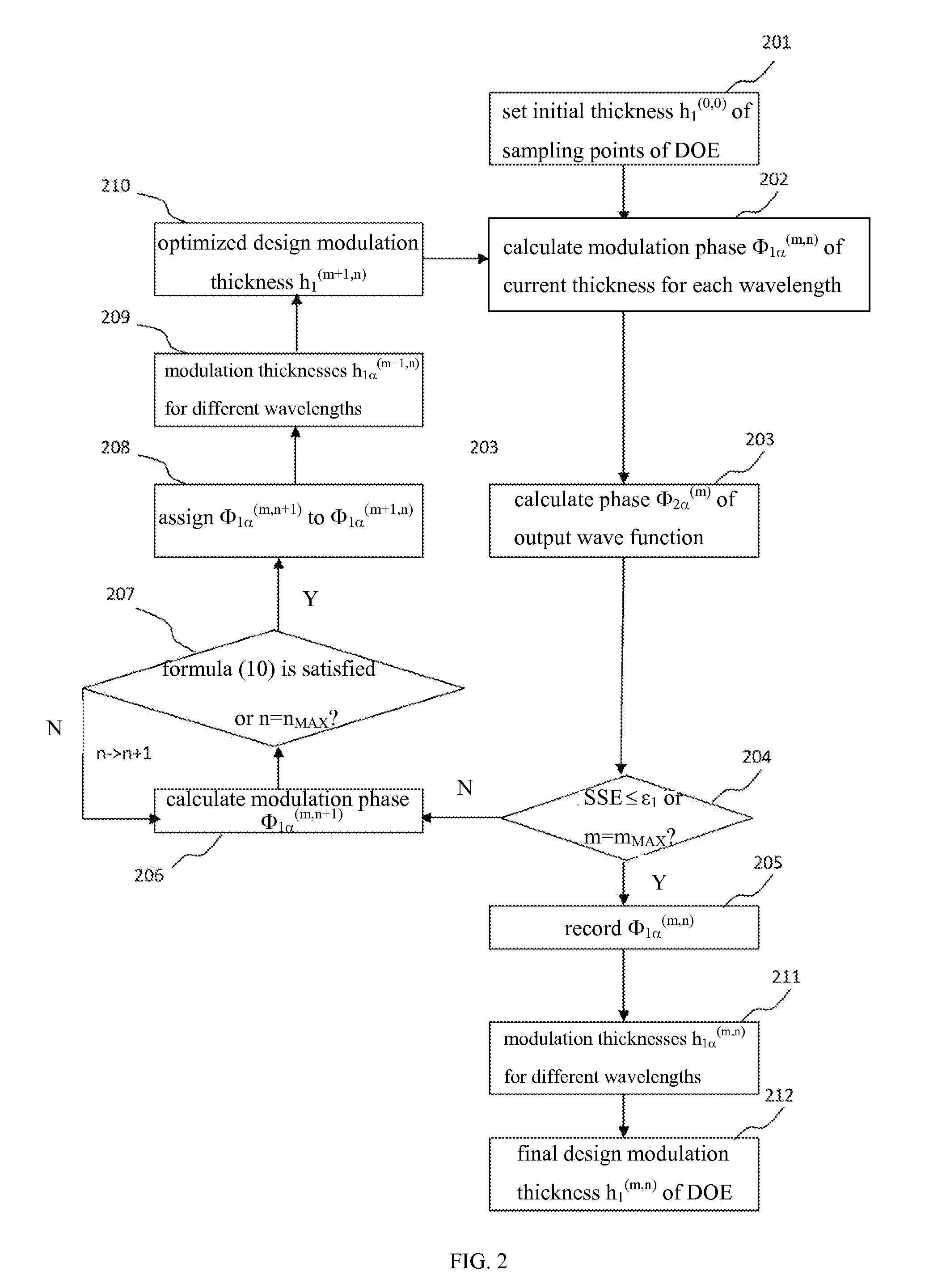Diffractive optical element, design method thereof and application thereof to solar cell
a diffractive optical element and design method technology, applied in the field of optical elements, can solve the problems of difficult to be precisely controlled, limited application high manufacturing cost, and achieve the effects of enhancing the diffraction efficiency of diffractive optical elements, reducing costs, and improving flexibility in selecting modulation thickness
- Summary
- Abstract
- Description
- Claims
- Application Information
AI Technical Summary
Benefits of technology
Problems solved by technology
Method used
Image
Examples
Embodiment Construction
[0045]Design Ideas of a Diffractive Optical Element According to the Present Invention As shown in the illustrative optical system of FIG. 1, an incident light beam having a plurality of wavelength components λα propagates from an input plane P1 to an output plane P2 wherein α=1, 2, 3, . . . Nλ, Nλrepresents the number of different wavelengths, and Nλ is exemplarily equal to 3 in FIG. 1. The diffractive optical element 1 is adhered to the input plane P1 to modulate the phase of the incident light beam so as to obtain output light on the output plane P2, where the plurality of wavelength components are color-separated and focused. In FIG. 1, locations of λ1, λ2 and λ3 respectively represent focusing positions or areas where light wave of the corresponding wavelength components are respectively focused on the output plane P2.
[0046]Regarding the wavelength λα, its incident light wave is modulated by the diffractive optical element 1, and then has an input wave function denoted by U1α o...
PUM
 Login to View More
Login to View More Abstract
Description
Claims
Application Information
 Login to View More
Login to View More - R&D
- Intellectual Property
- Life Sciences
- Materials
- Tech Scout
- Unparalleled Data Quality
- Higher Quality Content
- 60% Fewer Hallucinations
Browse by: Latest US Patents, China's latest patents, Technical Efficacy Thesaurus, Application Domain, Technology Topic, Popular Technical Reports.
© 2025 PatSnap. All rights reserved.Legal|Privacy policy|Modern Slavery Act Transparency Statement|Sitemap|About US| Contact US: help@patsnap.com



